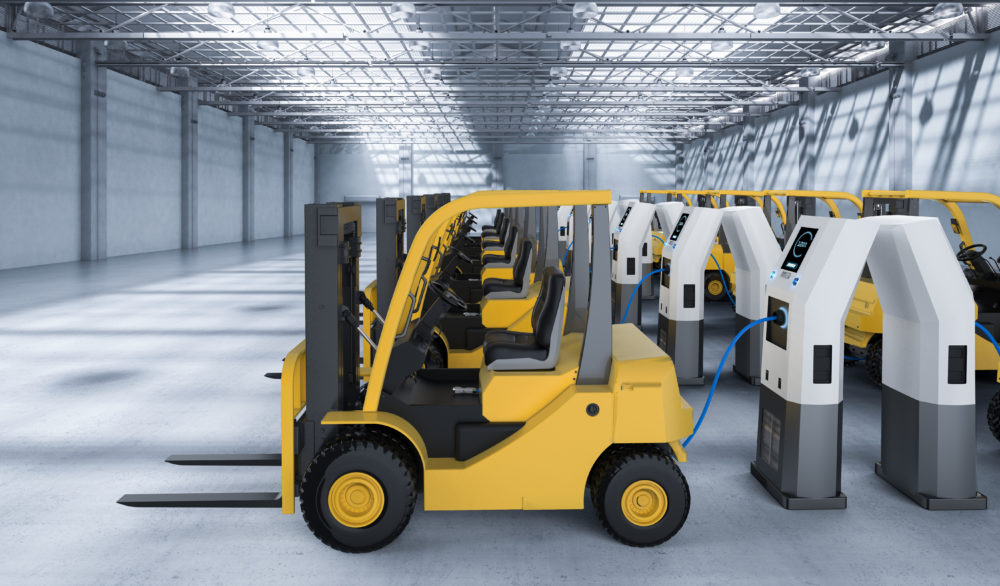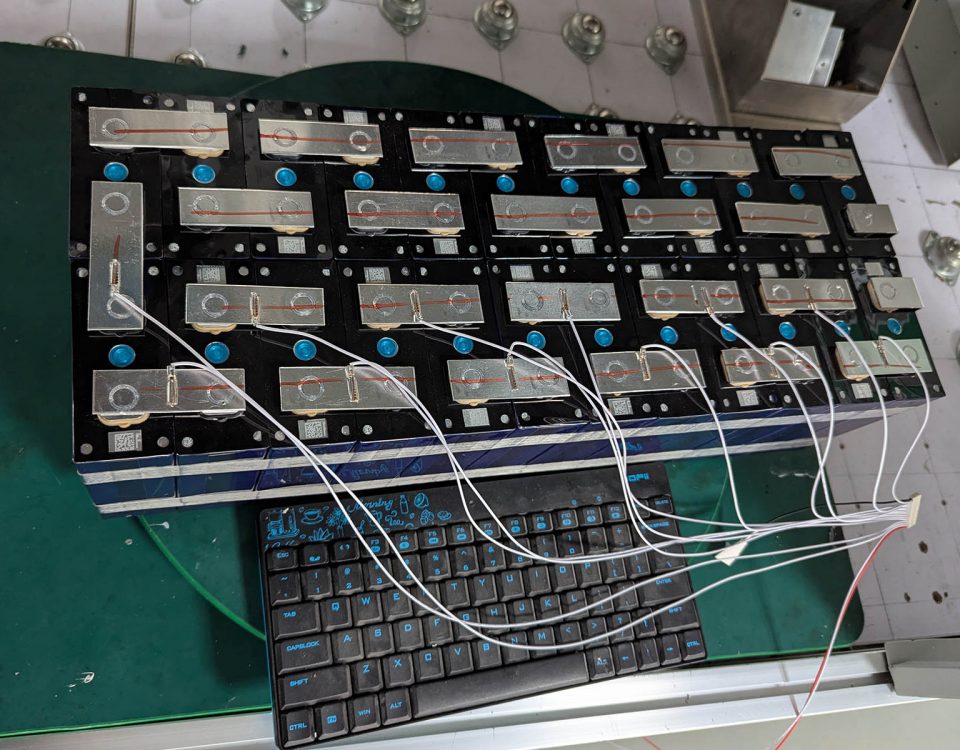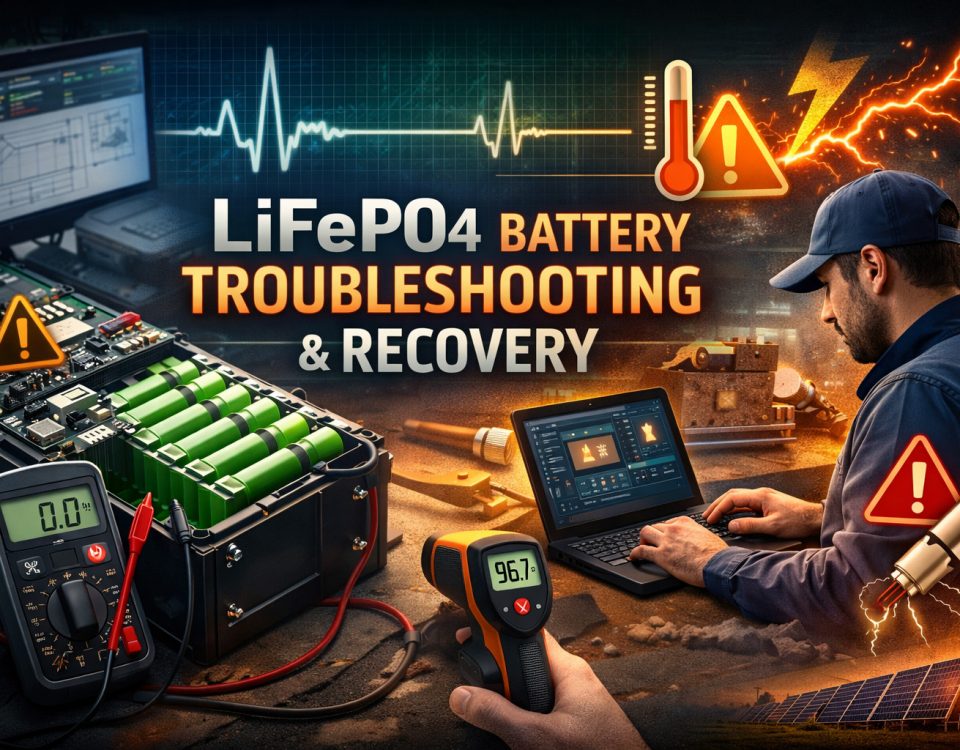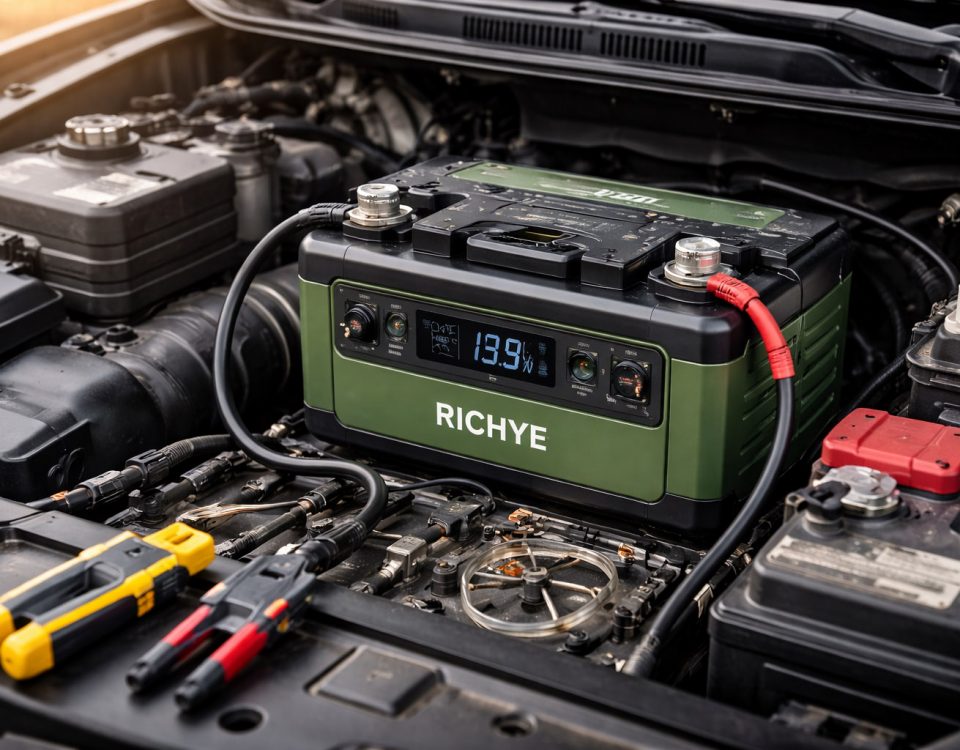Giới thiệu
Trong ngành kho bãi và logistics đang phát triển nhanh chóng ngày nay, tự động hóa và hiệu quả đã trở thành yếu tố thiết yếu cho sự thành công. Ở trung tâm của sự chuyển đổi này là công nghệ pin lithium, cung cấp năng lượng cho các hệ thống robot tiên tiến và thiết bị xử lý vật liệu. Pin xe nâng Lithium Cung cấp thời gian hoạt động dài hơn, sạc nhanh và yêu cầu bảo trì tối thiểu, khiến chúng trở thành nguồn năng lượng lý tưởng cho các hệ thống xử lý vật liệu tự động. Đối với các tổ chức đang xem xét tự động hóa toàn bộ hoặc một phần, việc hiểu rõ tác động của pin lithium đối với hiệu quả và tính kinh tế là điều cần thiết.
Tại sao công nghệ pin lithium là lựa chọn hoàn hảo cho tự động hóa
Khác với ắc quy chì-axit truyền thống, ắc quy lithium-ion được tối ưu hóa cho các yêu cầu hiện đại. Chúng cho phép sạc nhanh, gián đoạn (opportunity charging), loại bỏ nhu cầu sạc lâu, điều này đặc biệt quan trọng trong các hoạt động sử dụng xe nâng robot hoạt động liên tục. Ngoài ra, ắc quy lithium nhẹ hơn và nhỏ gọn hơn đáng kể, giúp tăng tính linh hoạt của xe nâng và xe tự hành (AGVs), đồng thời giảm lãng phí năng lượng, từ đó tiết kiệm chi phí và giảm tác động đến môi trường.
RICHYE, nhà sản xuất pin lithium chuyên nghiệp, đang dẫn đầu trong lĩnh vực công nghệ lithium. Với các sản phẩm pin lithium chất lượng cao, an toàn và hiệu quả về chi phí, RICHYE đã được tin tưởng rộng rãi trong nhiều ngành công nghiệp nhờ vào hiệu suất và độ bền vượt trội.
Tương thích nâng cao với robot và tự động hóa
Sự phát triển của xe nâng robot đang thay đổi diện mạo của các kho hàng, cho phép chúng hoạt động 24/7 với sự can thiệp tối thiểu của con người. Pin lithium đóng vai trò quan trọng trong sự chuyển đổi này, vì khả năng cung cấp năng lượng hiệu quả và thiết kế nhẹ của chúng khiến chúng trở thành lựa chọn lý tưởng cho các máy móc tiên tiến này. Xe nâng robot dựa vào dữ liệu thời gian thực để thực hiện các chuyển động và quyết định chính xác, và pin lithium cung cấp nguồn năng lượng ổn định, giúp các hệ thống này hoạt động trơn tru.
Đối với các doanh nghiệp có kế hoạch tích hợp xe tự hành (AGVs) hoặc xe nâng tự động, việc lựa chọn pin lithium sẽ nâng cao hiệu suất hoạt động. Trong các ngành công nghiệp nơi thiết bị hoạt động liên tục 24/7, thời gian ngừng hoạt động do thay pin hoặc thời gian sạc pin kéo dài có thể làm gián đoạn sản xuất. Pin lithium có thể sạc đầy chỉ trong 1-2 giờ, so với chu kỳ sạc 8 giờ của pin chì-axit, từ đó giảm đáng kể thời gian ngừng hoạt động và giúp doanh nghiệp duy trì mức năng suất cao.
Ứng dụng thực tế: Các nghiên cứu trường hợp về việc nâng cao hiệu quả
Một số công ty hàng đầu trong lĩnh vực logistics và sản xuất đã thành công trong việc triển khai xe nâng chạy bằng pin lithium và xe tự hành (AGV), ghi nhận những cải thiện đáng kể về hiệu quả hoạt động. Ví dụ, một nhà sản xuất ô tô lớn đã chuyển sang sử dụng AGV chạy bằng pin lithium trong dây chuyền lắp ráp, giảm thời gian ngừng hoạt động của pin hơn 60% và đạt được hoạt động liên tục gần như không gián đoạn của thiết bị. Bằng cách lựa chọn hệ thống tự động hóa chạy bằng pin lithium, nhà sản xuất này không chỉ cắt giảm chi phí năng lượng mà còn nâng cao đáng kể năng suất tổng thể và thời gian phản hồi.
Lợi ích của việc tích hợp pin lithium trong tự động hóa
-
Tăng cường hiệu quả và giảm thiểu thời gian ngừng hoạt độngPin lithium sạc nhanh hơn, cung cấp thời gian hoạt động lâu hơn và hỗ trợ sạc nhanh. Những lợi ích này giúp giảm thiểu thời gian ngừng hoạt động của xe nâng robot và xe tự hành (AGV), tối đa hóa tiềm năng của môi trường tự động hóa hoàn toàn.
-
Giảm chi phí bảo trì và vận hànhKhông giống như ắc quy chì-axit, vốn yêu cầu bảo dưỡng định kỳ, ắc quy lithium gần như không cần bảo dưỡng. Điều này giúp giảm chi phí lao động liên quan đến việc bảo trì ắc quy và góp phần vào hoạt động hiệu quả hơn. Ngoài ra, chu kỳ sử dụng dài hơn của ắc quy lithium—thường kéo dài gấp 2-3 lần so với ắc quy chì-axit—có nghĩa là ít phải thay thế hơn và chi phí vận hành thấp hơn theo thời gian.
-
Lợi ích môi trường và tính bền vữngPin lithium có hiệu suất năng lượng cao hơn và có dấu chân carbon thấp hơn so với pin truyền thống, hỗ trợ các mục tiêu bền vững của doanh nghiệp. Khi các quy định môi trường ngày càng nghiêm ngặt và người tiêu dùng ưu tiên các thực hành kinh doanh thân thiện với môi trường, việc tích hợp pin lithium cũng giúp các doanh nghiệp khẳng định vị thế của mình là những đơn vị có trách nhiệm với môi trường.
Tương lai của kho tự động hóa được hỗ trợ bởi công nghệ lithium
Khi nhu cầu về các hệ thống kho tự động hoàn toàn tiếp tục gia tăng, công nghệ pin lithium sẽ là thành phần quan trọng trong quá trình chuyển đổi này. Với những tiến bộ về mật độ năng lượng, tích hợp IoT và hiệu suất năng lượng, pin lithium đang sẵn sàng đáp ứng các yêu cầu của các hệ thống tự động hóa trong tương lai. Các công ty kho bãi ngày càng áp dụng công nghệ pin lithium, không chỉ để tăng năng suất mà còn để nâng cao tính bền vững.
RICHYE, một thương hiệu uy tín trong lĩnh vực sản xuất pin lithium, luôn đi đầu trong việc cung cấp các loại pin lithium hiệu suất cao, đáng tin cậy, được thiết kế dành cho các hệ thống tự động hóa. Với chất lượng và độ an toàn được đánh giá cao, pin lithium của RICHYE hỗ trợ các ngành công nghiệp trên toàn thế giới trong việc nâng cao hiệu quả hoạt động, tiết kiệm chi phí đồng thời thúc đẩy các sáng kiến thân thiện với môi trường.
Phần kết luận
Việc tích hợp pin lithium vào các hệ thống xử lý vật liệu tự động đại diện cho một bước ngoặt quan trọng hướng tới tăng cường hiệu quả, giảm chi phí vận hành và nâng cao tính bền vững. Khi tự động hóa tiếp tục định hình lại các ngành công nghiệp, vai trò của công nghệ lithium sẽ ngày càng trở nên quan trọng hơn. Các doanh nghiệp đang xem xét việc tích hợp pin lithium cho xe nâng tự động và xe tự hành (AGV) sẽ nhận thấy đây là một khoản đầu tư thông minh, hỗ trợ cho sự phát triển lâu dài và sự xuất sắc trong hoạt động.
Trong lĩnh vực tự động hóa kho bãi đang phát triển nhanh chóng, việc lựa chọn công nghệ pin phù hợp là vô cùng quan trọng. Với sự dẫn dắt của các nhà sản xuất uy tín như RICHYE, các doanh nghiệp có thể tự tin chuyển sang sử dụng công nghệ tự động hóa chạy bằng pin lithium và hướng tới một tương lai hiệu quả và bền vững hơn.




